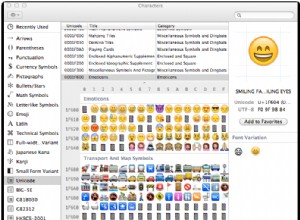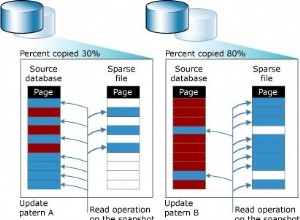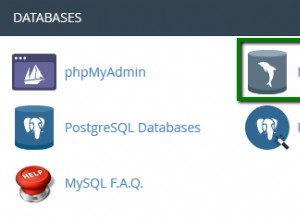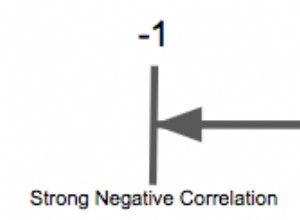Baza danych kontroluje, ile instrukcji może być jednocześnie wykonywanych. Nie pamiętam, czy Oracle zezwala na wiele instrukcji na prepare czy nie (MySQL robi). Spróbuj tego:
my $dbh = DBI->connect(
"dbi:Oracle:dbname",
"username",
"password",
{
ChopBlanks => 1,
AutoCommit => 1,
RaiseError => 1,
PrintError => 1,
FetchHashKeyName => 'NAME_lc',
}
);
$dbh->do("
CREATE TABLE test_dbi1 (
test_dbi_intr_no NUMBER(15),
test_dbi_name VARCHAR2(100)
);
UPDATE mytable
SET col1=1;
CREATE TABLE test_dbi2 (
test_dbi_intr_no NUMBER(15),
test_dbi_name VARCHAR2(100)
);
");
$dbh->disconnect;
Oczywiście, jeśli podzielisz instrukcje, uzyskasz lepszą obsługę błędów. Możesz użyć prostego parsera, aby podzielić ciąg na pojedyncze instrukcje:
#!/usr/bin/perl
use strict;
use warnings;
my $sql = "
CREATE TABLE test_dbi1 (
test_dbi_intr_no NUMBER(15),
test_dbi_name VARCHAR2(100)
);
UPDATE mytable
SET col1=';yes;'
WHERE col2=1;
UPDATE mytable
SET col1='Don\\'t use ;s and \\'s together, it is a pain'
WHERE col2=1;
CREATE TABLE test_dbi2 (
test_dbi_intr_no NUMBER(15),
test_dbi_name VARCHAR2(100)
);
";
my @statements = ("");
#split the string into interesting pieces (i.e. tokens):
# ' delimits strings
# \ pass on the next character if inside a string
# ; delimits statements unless it is in a string
# and anything else
# NOTE: the grep { ord } is to get rid of the nul
# characters the split seems to be adding
my @tokens = grep { ord } split /([\\';])/, $sql;
# NOTE: this ' fixes the stupid SO syntax highlighter
#this is true if we are in a string and should ignore ;
my $in_string = 0;
my $escape = 0;
#while there are still tokens to process
while (@tokens) {
#grab the next token
my $token = shift @tokens;
#if we are in a string
if ($in_string) {
#add the token to the last statement
$statements[-1] .= $token;
#setup the escape if the token is \
if ($token eq "\\") {
$escape = 1;
next;
}
#turn off $in_string if the token is ' and it isn't escaped
$in_string = 0 if not $escape and $token eq "'";
$escape = 0; #turn off escape if it was on
#loop again to get the next token
next;
}
#if the token is ; and we aren't in a string
if ($token eq ';') {
#create a new statement
push @statements, "";
#loop again to get the next token
next;
}
#add the token to the last statement
$statements[-1] .= $token;
#if the token is ' then turn on $in_string
$in_string = 1 if $token eq "'";
}
#only keep statements that are not blank
@statements = grep { /\S/ } @statements;
for my $i (0 .. $#statements) {
print "statement $i:\n$statements[$i]\n\n";
}




